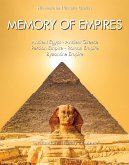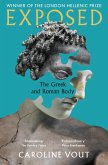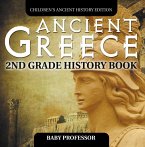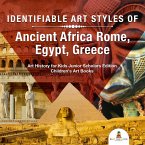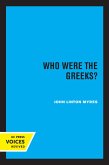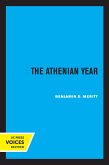The Hellenes (Greeks) lived in Asia Minor, in their historical homeland, since antiquity, where the ancient hellenic cities flourished until the Hellenistic years. Much later, Asia Minor was conquered by Turkic tribes who moved there from Central Asia. The Greeks remained in these territories until the beginning of the 20th century, when the Kemalists seized power of the Ottoman state. The Seven Churches, the Seven Lamps of Hellenic-Christian culture, were extinguished.. From Aeolia to Lycia and Cilicia, from Bithynia to Paphlagonia and Cappadocia, and from Caria and Ionia to Lydia, Mysia, Pisidia and Pamphilia, the Hellenic element was culturally dominant, except for some periods until the Roman conquest, when the Hittites first and then the Persians subdued by force of arms and numerical superiority the flourishing Hellenic cities and towns of Asia Minor.. Greeks founded colonies and other settlements in new environments.This whole process took place during the period of the first and second Great Greek Colonisation in 8th and 6th centuries BCE, respectively. The Greek diaspora established colonies (city-states) and other settlements in the lands that stretching from the Iberian Peninsula in the West to North Africa in the South and the Euxeinos Pontos in the North East. Greek culture and local cultures met, influenced, and enriched each other. This cultural heritage, that they created together and which was kept until the roman and byzantine era,formed later the basis foundations of modern European culture.. Beginning from the 9th century, the route from the Baltic Sea to the Black Sea became particularly profitable and important to the Slavs. One of Constantinople most powerful trading partners was Ancient Russia. An important revival in relations between Russia and Constantinople happened in the 9th century when the waterway «From the Varangians to the Greeks» connected northern Europe with the South.. The Greeks, with the invitation to the area of Azov of Catherine II The Great, were the descendants of the Ionians, who lived in Asia Minor and after the persecution of the Turks on the coast of Asia Minor, in the Aegean and Crete fled to the lands of Novorussia. The Greeks during 400 years of slavery under the Turkish yoke and occupation retained their language and Christian faith as Crypto-Christians. The restoration of the colonists from Greece to the lands of southern Russia, Catherine The Great II, considered it reasonable and necessary..
Dieser Download kann aus rechtlichen Gründen nur mit Rechnungsadresse in A, B, BG, CY, CZ, D, DK, EW, E, FIN, F, GR, HR, H, IRL, I, LT, L, LR, M, NL, PL, P, R, S, SLO, SK ausgeliefert werden.



